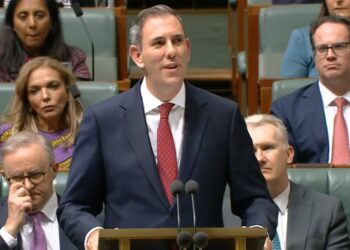A research note from Morgan Stanley said the financial advice market in the UK shows regulation driving open architecture and independent advice to break down vertical integration have proved challenging.
As a result, the industry is moving back to a vertically-integrated model as planners move to restricted advice.
“The unbundling of the value chain (product manufacture, distribution and advice) has, in our view, led to a significant change in the makeup of the UK (retail) investment market, with several trends now emerging, some years after reforms were introduced,” Morgan Stanley said.
“The main impact has been the creation of an ‘advice gap’, we believe.”
Following larger financial institutions (Barclays, HSBC, Lloyds and RBS) announcing they would no longer offer advice and/or redirect efforts to target high and ultra-high-net-worth individuals, Morgan Stanley’s research noted that the financial advice industry saw around a 20 per cent reduction in the number of financial advisers between 2011 and 2016.
In particular, the banks saw the largest compression, losing almost 60 per cent of its advisers.
However, Morgan Stanley added that the reduction in the number of advisers has coincided with market consolidation as smaller players exited with larger, scaled players such as St. James’s Place benefiting, growing its number of advisers by 6 to 7 per cent per annum, and net new business (as a percentage of opening funds under administration) consistently in the low-double-digit percentage range over the last five to six years.
The UK’s Financial Conduct Authority proposed its Retail Distribution Review (RDR) in 2009 before implementing it on 1 January 2013.
Under the model, advice firms must describe their financial advice as “independent” or “restricted” (bank-aligned).
Further, advisers can no longer receive commissions from product providers and must agree to upfront fees with customers.
Advisers are also required to hold a professional qualification, complete annual professional development and comply with a code of ethics.




We should be moving towards an individual professional model like other professions (but improved learning from their mistakes), not financial institutional models like the RDR or any other country for that matter.
This is clearly something our govt and regulators thought that we could do better than in the UK… like with many things Australia always tends to ignore what has been done before (and failed) everywhere else and plunges on irrespective of the impending failure.
I was under the belief that the RC only happened because the banks new the end result before it was started. that is the removal of their competition and unfettered direct access to clients.
We should have the same definition in Australia for Adviser.
[i] the model, advice firms must describe their advice as “independent” or “restricted” (bank-aligned) Advisers. [/i]
Clearly our banks continue to have too much power and influence over Govt, RC, etc.
As our current definition of Independent Adviser is so over the top absurd and the strictest in the world.
The big difference in the UK is that restricted planners can only recomend off their APL, and cannot consider or advise on the clients exisiting external products. The restricted definition would not work here as insto licences all have one off approval processes, and over the last 3-4 years have largely become product agnostic.
Where can we find the source report or a larger summary of it?